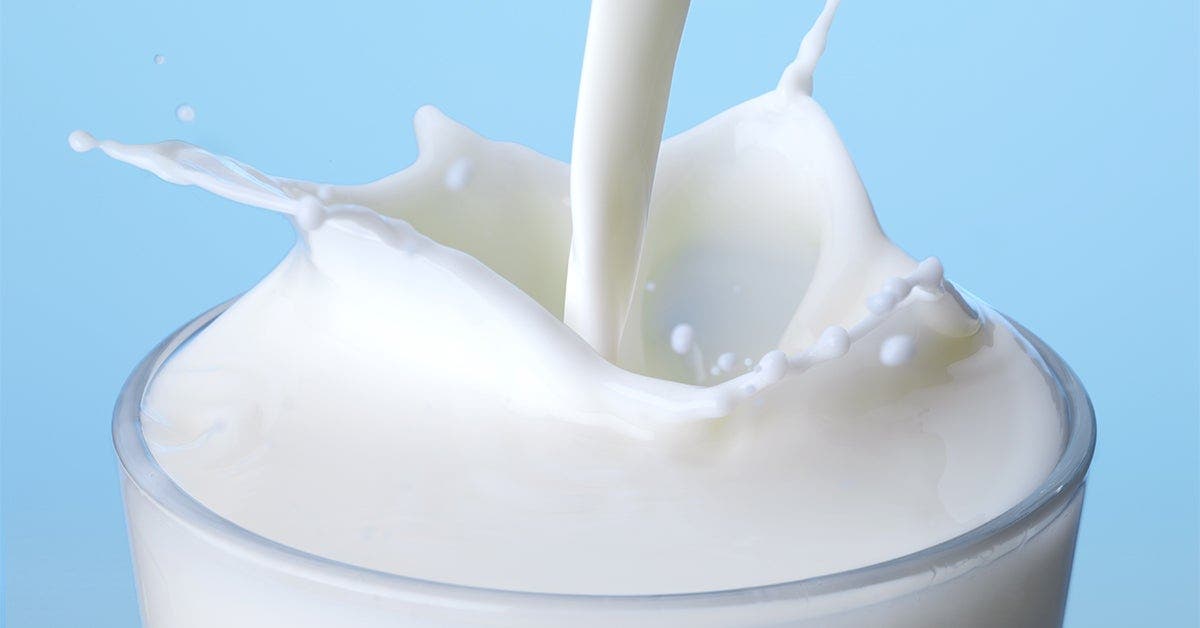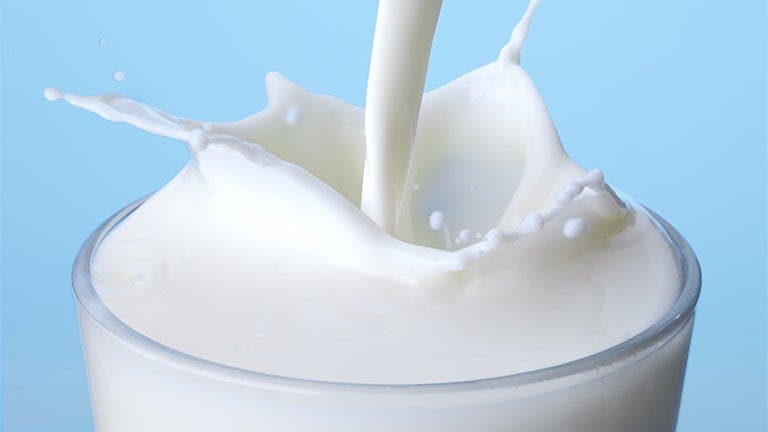The health benefits of milk


In this article:
Ideally what’s on your plate (or in your glass) hits the nutritional trifecta: It fills you up, satisfies your tastebuds, and provides you with nutrients that keep you healthy. A shining example of something that hits all those marks is milk. A cold glass of it is tasty with a cookie, the perfect pairing for cereal, and a smart smoothie base — and it’s a good source of nutrients like calcium, vitamin B12, potassium, and protein (which helps keep you full). Most milk is also fortified with vitamin D, which many people in the U.S. are low in, promoting calcium absorption to help keep your bones strong. Plus, new research shows milk may benefit your blood pressure and reduce your colorectal cancer risk. (And if you don’t do dairy, keep reading — plant-based milks have lots of benefits, too.)
How milk benefits health
Research has found some interesting connections between milk consumption and overall health.
Providing necessary nutrients
Milk is loaded with nutrients that can help your body function, including:
- Protein. Milk is a complete protein, which means it contains all 9 essential amino acids.
- Vitamin A. This supports a healthy immune system, skin health and eye health.
- Vitamin D. This promotes immune function and bone health, and helps with calcium absorption.
- Calcium. Important for bone, teeth, and heart health, it also plays a role in blood clotting.
- Several B vitamins. These help with everything from energy production to nervous system function.
Reducing colorectal cancer risk
Colorectal cancer is the third most-common cancer in the world. A 2025 study which followed half a million women for 16 years found that a little less than one cup of milk per day can lead to a 14% reduction in the risk of colorectal, colon, and rectal cancers. Researchers think the calcium in the milk may be the reason. (It’s worth noting this is one study's findings; the 2018 World Cancer Research Fund meta-analysis reported a 6% risk reduction in risk for the same dose.)
Potential downsides to milk
While milk has many benefits, which outweigh the cons for most people, that may not be true for everyone. For example, milk consumption may result in acne; other people have a milk allergy or are lactose intolerant, so they need to avoid milk. Some research also suggests a link between milk and higher risk of prostate cancer, which may be a concern for those already at higher risk. If you’re concerned about any of these issues, discuss milk with your health care provider.
Points for dairy milk
The milk section of the grocery store has grown and grown in recent years, making it tough to know which option is the healthiest. Points can help steer you towards the kinds with the most nutritional benefit and the lowest saturated fat per serving (the lower the Points value, the less saturated fat). This is important because higher saturated fat intake is linked to an increase in cholesterol and higher risk of heart disease and stroke.
Here's the Points breakdown so you can decide which milk is right for you:
| Cow's milk | Points Values per 1-cup serving |
|---|---|
| Skim (fat free) | 3 Points |
| 1% milk (low fat) | 4 Points |
| 2% milk (reduced fat) | 5 Points |
| Whole milk | 6 Points |
Points for non-dairy milks
If you’re vegan, have a dairy allergy, have lactose intolerance, or just don’t like the taste of cow’s milk, there are lots of plant-based options out there. Many of these are fortified with vitamin D, calcium, and protein — just check the label since the nutritional facts can vary based on the brand, and some plant-based milks contain added sugars, which can increase the number of Points.
| Plant-based milks | Points per 1-cup serving |
|---|---|
| Almond milk (unsweetened) | 1 Point |
| Oat milk (unsweetened) | 2 Points |
| Cashew milk (unsweetened) | 1 Point |
| Hemp milk (unsweetened) | 2 Points |
| Pea milk (unsweetened) | 2 Points |
| Soy milk (unsweetened) | 2 Points |
Recipes that use milk
Drinking a cup of milk not your thing? There are still plenty of ways to get its nutritional benefits. Try these lower-Points recipes to incorporate more milk into your diet:
Malted Milk Mudslide Shooters, 4 Points
Banana Bread Overnight Oats, 4 Points
Blueberry Cheesecake Pops, 3 Points
The bottom line
Whether you go non-dairy or dairy, milk has helpful nutrients for your body, including calcium, vitamins, and protein. Plus, research shows that consuming milk can reduce your colorectal cancer risk. Some milk can have higher levels of saturated fat and added sugar, so rely on Points to guide your choice.
This content is for informational purposes only and does not constitute medical advice, diagnosis or treatment. It should not be regarded as a substitute for guidance from your healthcare provider.
